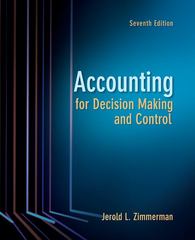Question
Peter has recently received a large grant from the Waitangi Tribunal settlement with the Australian Government. Anna Carolina, Peter's newly appointed financial controller, has been
Peter has recently received a large grant from the Waitangi Tribunal settlement with the Australian Government. Anna Carolina, Peter's newly appointed financial controller, has been considering investing a portion of the funds in the bonds of Blackburn Industries until the finance committee has decided on a long-term investment of the monies. The bonds (which are actively traded in the bond markets) were issued five years ago at their $1,000 par value and have exactly 20 years remaining until they mature. They have an 8% coupon interest rate, are convertible into 50 shares and can be called any time at $1,080. The bond is rated Aa by Moody's. Blackburn Industries, a manufacturer of sporting goods, recently acquired a clothing company that was in financial distress. Because of the acquisition, Moody's and other rating agencies are considering a rating change for Blackburn bonds. Recent economic data suggest that inflation, currently at 3% annually, is likely to increase to a 4% annual rate.
Anna remains interested in the Blackburn bond but is concerned about inflation, a potential rating change and maturity risk. To get a feel for the potential impact of these factors on the bond value, she decided to apply the valuation techniques she learned in her finance course.
REQUIRED:
(a) If the price of the shares into which the bond is convertible rises to $25 per share after five years and the issuer calls the bonds at $1,080, should Anna let the bond be called away from her or should she convert it into shares?
(b) For each of the following required returns, calculate the bond's value, assuming annual interest. Indicate whether the bond will sell at a discount, at a premium or at par value. (i) Required return is 6%, (ii) Required return is 8% and (iii) Required return is 10%.
(c) If Anna strongly believes that inflation will rise by 1% during the next six months, what is the most she should pay for the bond, assuming annual interest?
Step by Step Solution
There are 3 Steps involved in it
Step: 1

Get Instant Access to Expert-Tailored Solutions
See step-by-step solutions with expert insights and AI powered tools for academic success
Step: 2

Step: 3

Ace Your Homework with AI
Get the answers you need in no time with our AI-driven, step-by-step assistance
Get Started


